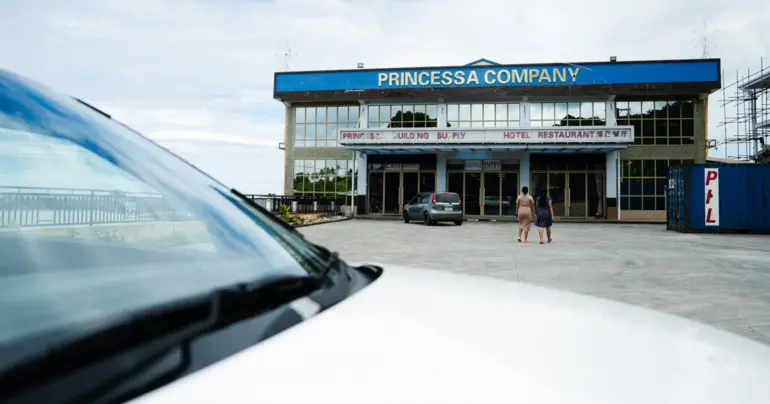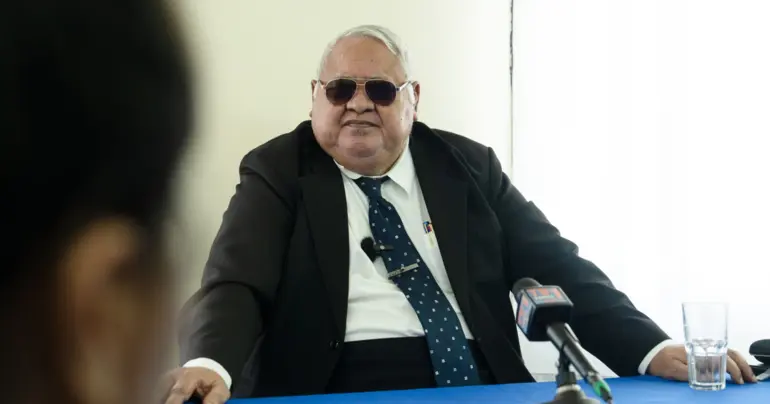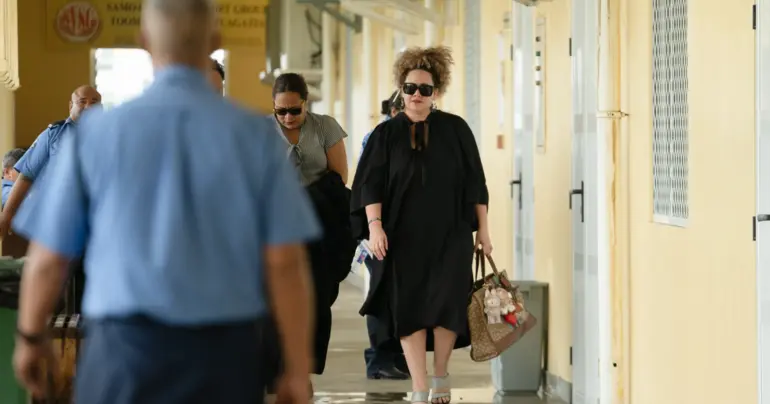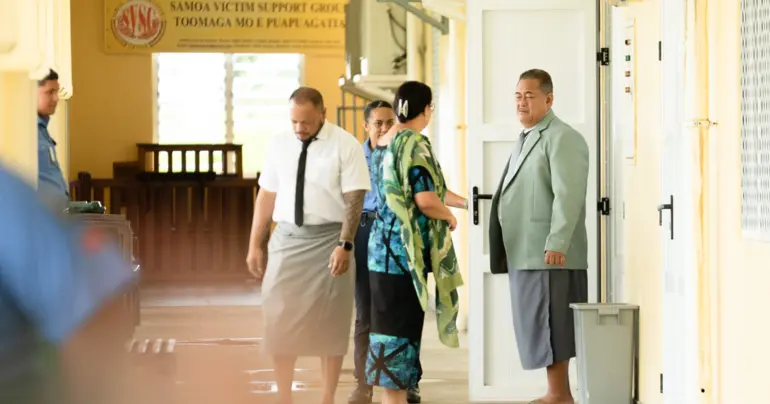Explainer: Samoa heads into its most unpredictable election
 By Jarrett Malifa
•
24 August 2025, 5:00PM
By Jarrett Malifa
•
24 August 2025, 5:00PM
With campaigning now over and polling day just five days away, Samoa is on the brink of one of its most unpredictable general elections. For the first time in the nation’s history, there appear to be multiple constitutional pathways to forming government — from a decisive majority win, to a minority government dependent on confidence, or even a bloc stitched together by independents and smaller parties. How these provisions are ultimately applied may end up in court as a matter for them, but what is clear is that Samoa faces several possible outcomes.
The numbers game
At its simplest, the equation is clear: in a 51-seat Parliament, a party must secure 26 seats to command a majority. But the reality is not so straightforward.
Samoa’s Constitution requires that at least six women hold seats in Parliament. If fewer than six are elected, the rule allows for additional seats to be created until the quota is satisfied. This could increase the total number of MPs from 52 to as many as 57, raising the threshold for majority. While unlikely, it remains a factor that could complicate the final count.
Majority or minority government?
The central constitutional question in electing the Prime Minister is not simply which party wins the most seats, but rather: who truly commands the confidence of the majority of Members of Parliament? The Constitution itself is notably silent on political parties, raising the issue of whether it is MPs’ support, rather than party numbers, that ultimately decides who becomes Prime Minister.
If one party wins a clear majority, the path is straightforward — they can choose their leader to become Prime Minister because they already hold more than half the seats. But what happens if no party reaches that threshold? Does the power then shift to Parliament itself, with MPs deciding across party lines who should lead?
The events of this year add further weight to the question. Prime Minister Fiamē Naomi Mataʻafa continued in office after losing the support of FAST, with only 14 MPs remaining by her side. Yet, despite her weakened numbers, two attempts to remove her through no-confidence motions failed. The failure to unseat her reaffirmed the principle at the heart of the Constitution: a Prime Minister stays in office so long as they command the confidence of the majority of MPs — regardless of party numbers. If an MP can hold that confidence, they remain Prime Minister; if they lose it, they are out.
And if that is the case, could someone from outside the major parties — whether an independent or even a member from a smaller group — one day rise to become Prime Minister, provided they command the support of more than half of Parliament? The Constitution appears to allow it, leaving the broader question: is Samoa’s Prime Minister chosen by parties, or by the confidence of MPs — and therefore, by extension, the confidence of half of Samoa through its representatives?
HRPP and FAST: The only two with nationwide reach
In this election, only the Human Rights Protection Party (HRPP) and Fa’atuatua i le Atua Samoa ua Tasi (FAST) have candidates in almost every constituency. Does this give them the clearest path to government with the chance of securing a majority on their own?
If either party crosses the majority line, the process is simple: they can immediately claim victory, select their leader as Prime Minister, and form a Cabinet without delay. But what happens if neither party can secure the magic number of seats?
Would negotiations then begin behind closed doors? Could smaller parties suddenly find themselves with greater bargaining power than their size suggests, using their seats to tip the balance one way or the other? Or will the large number of independents, spread across constituencies, emerge as the true kingmakers, able to decide which of the two main parties has the confidence of Parliament?
Both Tuilaepa Sailele Malielegaoi and Laauli Leuatea Schmidt will want to avoid this uncertainty by winning outright. That is why each party has campaigned with an eye firmly fixed on securing a clean majority — to eliminate the need for deals, backroom promises, or fragile alliances. For them, the stakes are high: a majority means stability, but anything less opens the door to complicated negotiations, bargaining chips, and potentially unstable government.
So the question remains: will voters hand either HRPP or FAST enough seats to govern alone, or will Samoa wake up to a hung Parliament where other parties and independents hold the keys to power?
The role of independents
Should the result be split, independents could become kingmakers. Their support may determine not only who becomes Prime Minister but also who fills key Cabinet positions, who takes the Speakership, and whether a minority government can survive.
It is well known how Tuala Iosefo Ponifasio, the sole independent to hold the balance of power in the 2021 election, wielded such immense sway and negotiating power that he not only shifted the government but also secured the Deputy Prime Minister role. But that only became possible because he first won a seat.
This year, with 44 independents contesting — the largest number to date — the stakes are higher. If even a portion of them are successful, they could emerge as a decisive force. About half have already signalled their intent by banding together under the banner Independent Together (IT). If they secure seats, could they act as a formidable bloc in post-election negotiations?
The 45-day deadline
The results of the election do not automatically form a government. MPs must be sworn in and a Prime Minister must be endorsed by Parliament. This must happen within 45 days of polling.
Failure to do so may trigger another election. This places immense pressure on parties and independents to reach agreements quickly, as any deadlock would send voters back to the polls. If no party emerges with a clear majority, those agreements become even more critical — a government must be formed within the deadline, or else Samoa faces another election where the current caretaker government remains caretaker for that period.
Speaker and cabinet: Bargaining chips?
The election of the Speaker is another constitutional flashpoint. If one party commands a majority, their nominee is almost certainly considered elected Speaker. But if no party has a majority, the rule may fall back to Parliament itself — MPs may have to vote to decide. Could this position, along with that of the Deputy Speaker, become part of high-stakes bargaining in the event of a hung Parliament?
The same questions extend to the formation of Cabinet. The Constitution allows for a maximum of 14 Members of Parliament to be appointed as Ministers by the Head of State, acting on the advice of the Prime Minister. But since these appointments are drawn from MPs, not strictly from one party, could this open the door to cross-party selections? Could a Prime Minister, in an effort to secure majority support, offer Cabinet posts to independents or even members across the floor?
Such outcomes may seem unlikely, yet the Constitution appears to allow them. And if negotiations are fierce, could the Speakership or Cabinet portfolios be the bargaining chips that ultimately decide who governs Samoa?
Petitions and challenges
It is well established in Samoa’s election history that petitions and challenges inevitably follow in the wake of general elections. With the record number of candidates contesting this year, it is likely that some will head to court almost immediately after polling. The outcomes of these petitions will not only determine individual seats but could also prove decisive in shaping the final makeup of the next Parliament — and could even change the Prime Minister and government after they have been sworn in.
Tested to the limits
Samoa’s Constitution has been tested to its limits over the past five years, from the 2021 election deadlock to ongoing disputes over government legitimacy. The upcoming vote may once again expose gaps and ambiguities.
The cleanest outcome would be a decisive majority. But with 187 candidates vying for 51 seats, and constitutional provisions that allow minority governments to function if they hold MPs’ confidence, the possibilities are many.
Cabinet positions, the Speakership, and even cross-party deals are all on the table. The only certainty is that by the end of this election, Samoa’s democracy will face another defining test of its resilience.
 By Jarrett Malifa
•
24 August 2025, 5:00PM
By Jarrett Malifa
•
24 August 2025, 5:00PM












